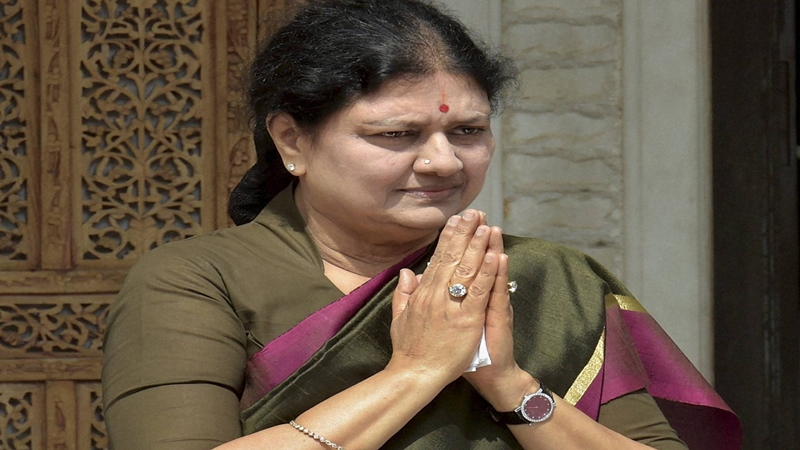SC convicts Jaya, Sasi in DA case, Sasikala, kin to be jailed in Bengaluru
Updated by admin on
Tuesday, February 14, 2017 10:57 AM IST

New Delhi:
The Supreme Court has overturned the Karnataka HC judge order acquitting Jayalalithaa, Sasikala and 2 others in the
Disproportionate Assets case, and upheld the trial order of Counha who convicted all the four to four years imprisonment. Sasikala,
Sudhagaran and Ilavarasan would have to immediately surrender before the court in Bengaluru and will be locked up in jail, perhaps in
the same prison where they were lodged after the trial court verdict. The imprisonment of Jayalalithaa would not arise as she is dead.
The SC order will mean that Sasikala cannot be sworn in as chief minister and it is upto the AIADMK legislature party to elect
another person, perhaps an MLA, and hope to retain majority of MLAs, and stake claim before the Governor to form the government.
The order comes as a boost to the rival O Panneerselvam camp which though outnumbered, with only 9 MLAs, will hope that many
more MLAs will join them. The Raj Bhavan decision will be crucial, and later the incumbent chief minister will have to win majority in
the confidence vote.
The verdict is a victory for the public prosecutor of Karnataka, B V Acharya, who had meticulously prepared the case for the trial
court. He resigned following pressure from the then BJP chief minister to resign from the post in an attempt to appoint another PP for
the case. The BJP move was seen as emanating from the Jayalalithaa camp to queer the pitch in the trial court case. However, a
change of guard in Karnataka with the Congress coming to power there saw the return of Acharya towards the fag end.
Justice Kumaraswamy's verdict acquitting Jayalalithaa and others was then seen as a miscarriage of justice, with a mathematical error
in computing disproportionate assets. His formula that the assets were less than 10 per cent in excess of known sources of income
was clearly wrong, and therefore likely to be set aside in the Supreme Court. If the mathematical order was corrected, the conviction
by the trial order would be upheld.
That was the expected turn of events.